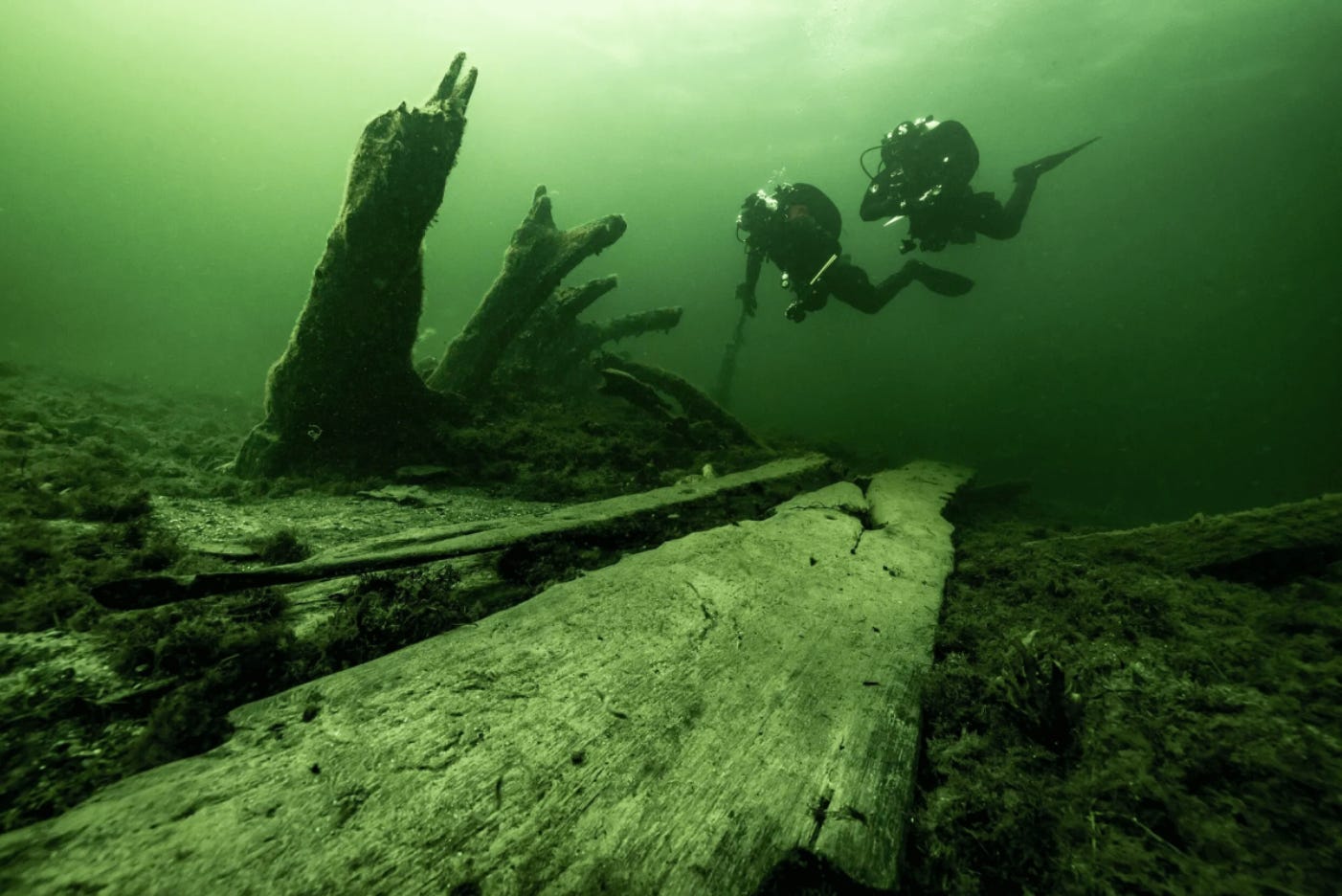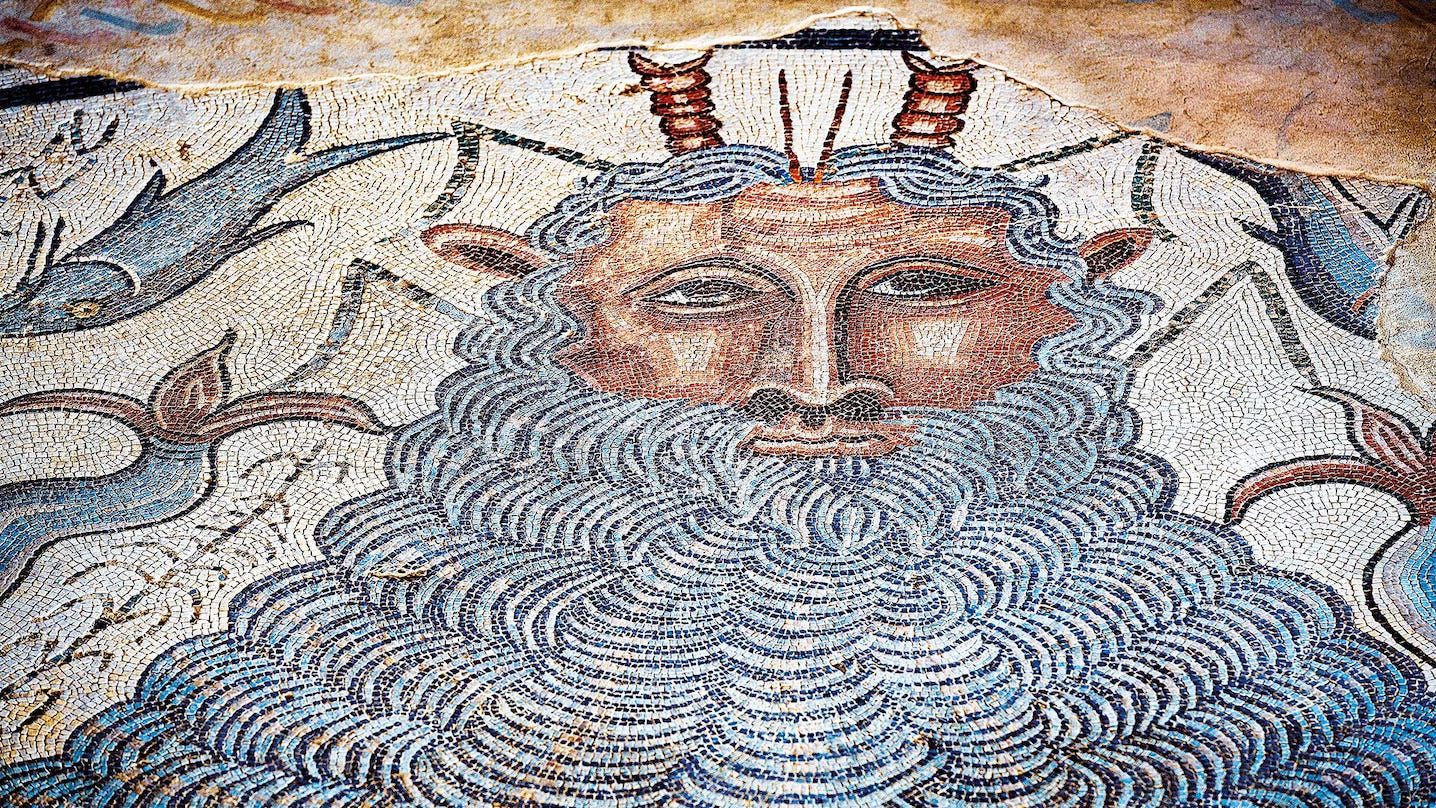Hi everyone,
Fun weekend here in LA. I’ve spent most of the weekend at the LA Times Festival of Books buying far too many books. I love events like this—there are so many wonderful indie presses out there to discover! Not a lot of history books represented though, that I’ve seen at least. Maybe I will find more today.
Enjoy your weekend, folks!
This week in history acting unruly…
The annual Lyrid Meteor Shower is at peak brightness tonight. This shower is one of the oldest known ones—astronomers in China first spotted and recorded Lyrid meteors in 687 BCE, meaning we’ve been watching them for 2,700 years.
Police are searching for two vandals who deliberately destroyed 140-million-year-old rock formations. If you recognize the two or know anything about it, please contact the National Park Service.
Electric vehicles are nothing new—in fact, they were some of the earliest vehicles invented.
This 2,000-year-old bronze tablet found in Turkey proves that Greek was spoken in Anatolia, proving that the city was multicultural.
A unique Medieval weapons chest was found on a sunken ship, The Gribshunden, which sank in 1495 off the coast of Sweden.
The shipwreck being explored by divers. Photo credit: Florian Huber.
Speaking of sunken ships, the San Jose has become the “Holy Grail” of shipwrecks. The Spanish galleon sank in 1708 with $20 billion worth of gold, emeralds, and silver.
Balmoral Castle is being opened to the public for the first time.
Once upon a time, nostalgia was considered deadly.
Real life Lady Macbeth? Porcia Catonis was the only woman privy to the plot to kill Julius Caesar, and she helped her husband Brutus go through with it when he had doubts.
In a cemetery in Argentina, a fox was found buried alongside humans. The proximity suggests that the box was thought of as a pet.
A Maya temple in Guatamala has revealed some strange clues that point to some political intrigue a thousand years ago—perhaps a regime change that left the dead former rulers in a slightly unrevered grave.
New finds are constantly being uncovered at Pompeii. This week’s is a dining room full of beautiful frescoes depicting scenes from the Trojan War.
Archaeologists were looking for a Medieval hermitage. Instead, they found a “monumental” prehistoric henge.
Burial sites across Europe show that Stone Age women were ritualistically sacrificed: tied up and buried alive.
In Italy, archaeologists from University of Tokyo found a villa they think belonged to the very first Roman emperor, Augustus.
Speaking of rulers, nearly every major European ruler from Nero to Elizabeth I took theriac as a miraculous cure-all. It was largely forgotten with the advent of modern medicine, but a lab in Poland has resurrected it to test the miraculous claims of the past.
In a fun historical mystery, a 100-year-old rare London North Eastern Railway train car was found buried in Antwerp. No one knows how it got there or why.
A rare LNER traincar being uncovered in Antwerp. Photo credit: London North Eastern Railway
Chechnya just banned any music that isn’t between 80 and 116 beats per minute. It’s a move to control culture and eliminate Western influence—but ironically it also bans the Russian national anthem, which has a pace of 76 bpm.
In China, a 3,000-year-old noblewoman’s tomb was uncovered with hundreds of burial objects that testify to the existence of the Ba state, which was previously undocumented in the Zhou records.
A fire destroyed Copenhagen’s historic stock exchange. Firefighters were able to salvage some of the art inside, but the building was a total loss, including the iconic spire shaped to looked like four winding dragon tails.
In a $20 auction box full of reels, a lost silent film starring Clara Bow was discovered!
1983, Carranque, Spain: An 18-year-old herder discovered an ancient Roman villa via the mosaics that survived millenia. Studies since then have told archaeologists a lot about Rome during the fourth century, but the owner of the villa remains a mystery.
Part of the mosaic in Carranque, Spain. Photo source: David Blázquez/Age Fotostock.
During excavations at the Church of St. Francis of Assisi in Krakow, a remarkable device was discovered: a 300-year-old medical prosthesis to help a man with his cleft palate. It was made with gold, copper, and wool.
In Fiji, a recently discovered mass grave is sparking questions—were the people buried as part of ritual cannibalism, or a measles epidemic?
The Wright brothers had a sister. Katharine was instrumental to the success of their work and in cementing their legacy.
A new study is revealing the Milky Way’s role in Ancient Egyptian mythology.
Speaking of astronomy and astrology—these 6 eclipses impacted history in various ways.








How did I miss the book festival again?! 📚